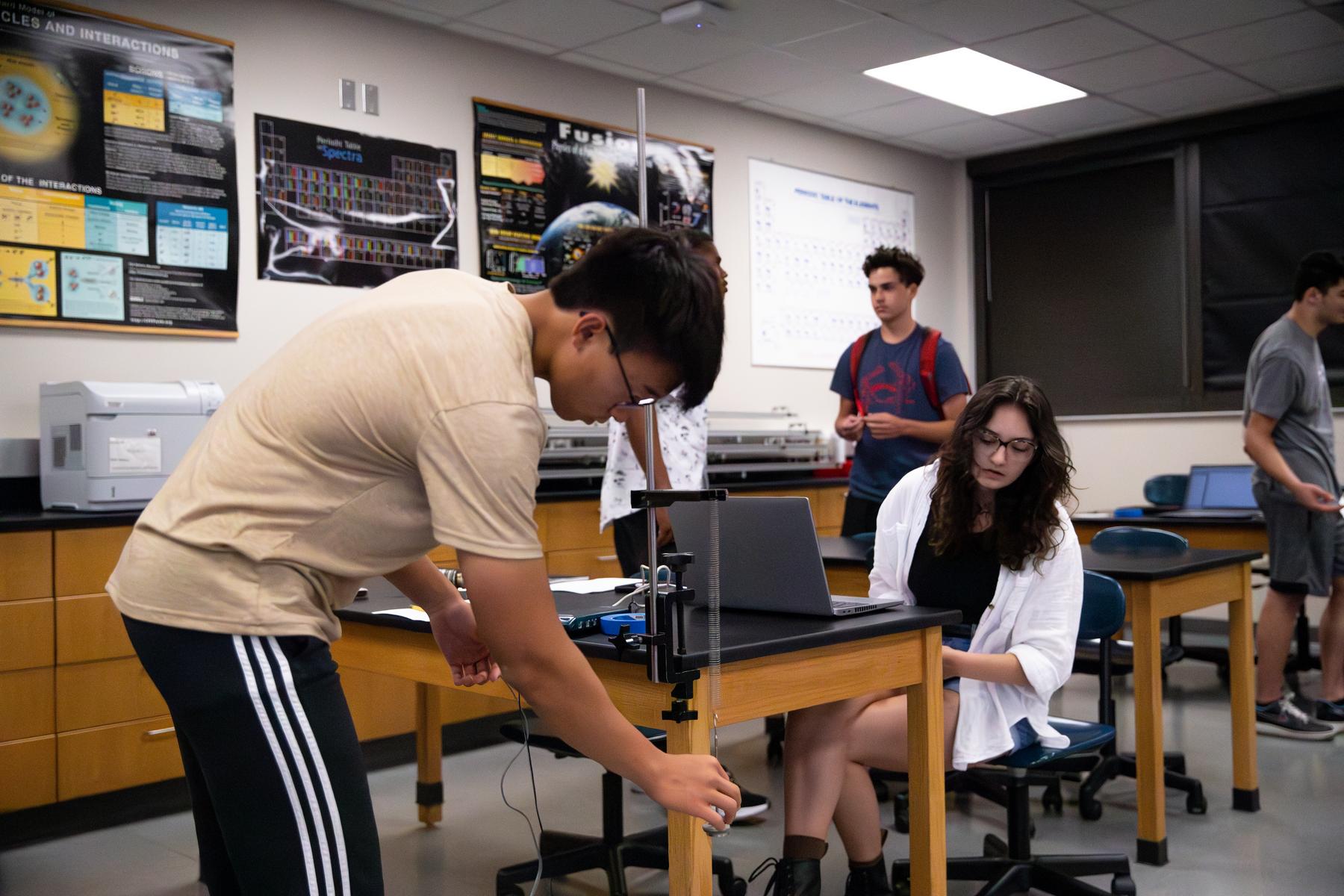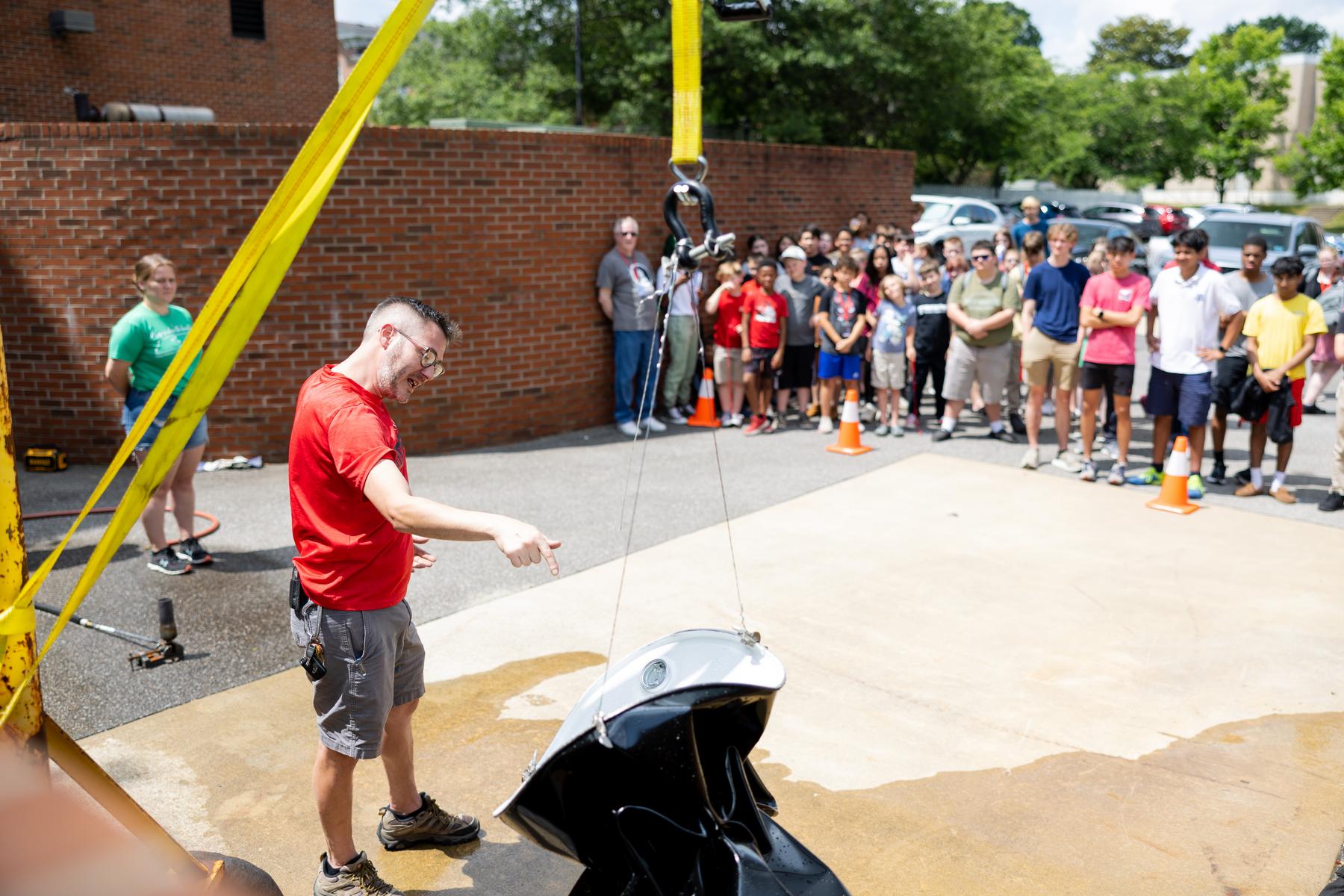Experience the future of science: APSU’s Governor’s School for Computational Physics
(Posted on Monday, June 26, 2023)
CLARKSVILLE, Tenn. - The Governor’s School for Computational Physics returned to Austin Peay State University (APSU) this summer, and the campus welcomed some of the brightest high school students in the state.
Computational physics is the study of scientific problems using computational methods. It combines computer science, physics and applied mathematics to develop solutions to complex problems, and Governor’s School students learned to use these skills to solve real-world problems.
“I’ve certainly learned a lot about calculus, coding and physics, and I really feel like that’s expanded my skill set very well,” Marley Jones, a Governor’s School student, said. “I really appreciate what Austin Peay is doing with the [Governor’s] School. I feel like it’s really having a great effect on a lot of kids. It’s going to provide me with skills and relationships as well that will last me into my career.”
In its 15th year at Austin Peay, the Governor’s School allows a select number of high school students from across Tennessee to gather for three weeks, learn from the minds of APSU professors and students and gain four college credit hours.
The camp comprises a college-level computational physics course, a field trip to Oak Ridge National Laboratory and hands-on activities like crushing a barrel with water. APSU provides scholarships, room and board for the students throughout the program.
Dr. Alex King, the director of the Governor’s School for Computational Physics and chair of the Department of Physics, Engineering and Astronomy, said he is proud of the effect the camp has on the students.
“One of the main ideas [of the camp] is to give students an idea of the sorts of scientific careers that are available,” King said. “Most high school students don’t have any experience with computational modeling of scientific ideas. Although it’s in every scientific field, it’s fundamental in the modern age.”
The students worked on daily activities in pairs throughout their stay, including coding computational techniques, experimental setup, computer-based data acquisition, computational modeling of systems and interpretation of results. Most of the work was done on laptops provided by APSU through a grant that allowed the Governor’s School students to keep the laptops after the three weeks ended.
Bryan Gaither, the laboratory manager for the Department of Physics, Engineering and Astronomy, challenged students to take the knowledge they learned in the classroom and apply it in lab exercises throughout the program. He placed the students in groups of three for each activity so they could work with each classmate.
“Today we are essentially finding simple harmonic motion in a code,” said Jacob Horwitz, a student in one of the labs. “So, we are using weights to weigh down a spring and then graphing Newton’s meters to find the spring constant.”
The Governors School also introduced students to calculus and vector analysis; programming skills; data acquisition; ballistics; electric circuits; structural vibrations; and chaos.
Along the way, visiting students learned about the resources on campus through APSU’s professors, students and alums.
To learn more about Governor’s School for Computational Physics, visit https://www.apsu.edu/governors-school/.

